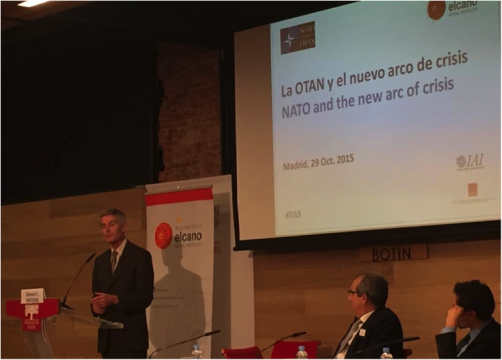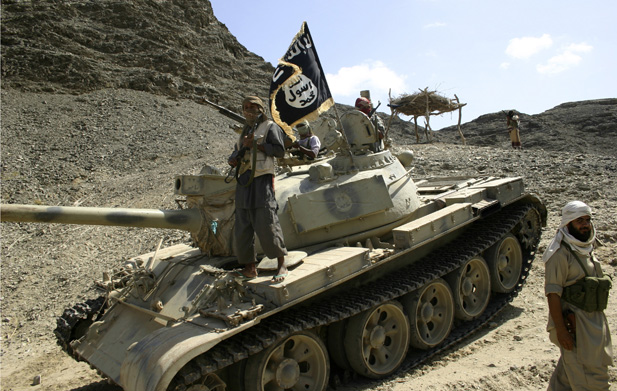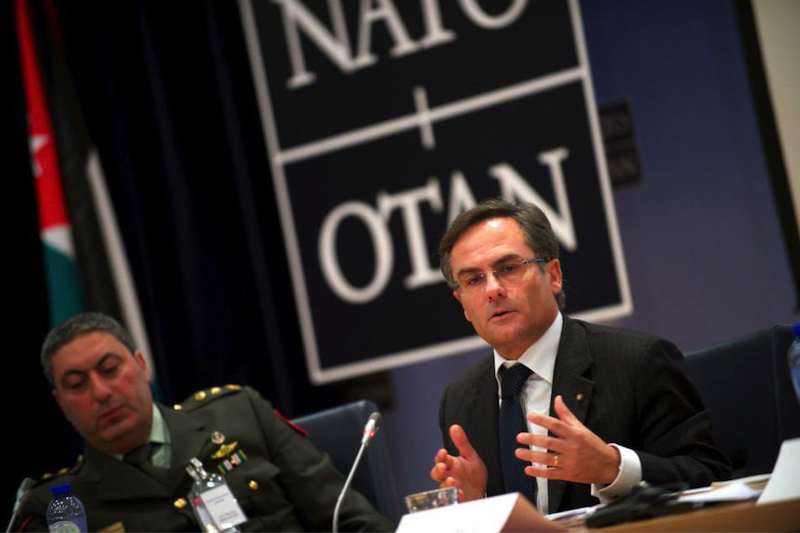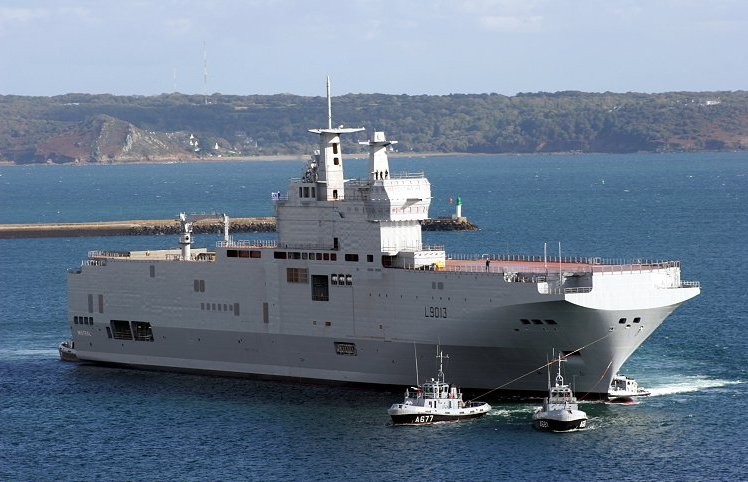The NATO Council of Canada thanks YATA, the Real Instituto Elcano, and the Fundación Botín for their efforts in organizing this fruitful conference.
Overview: NATO and the New Arc of Crisis Conference
Madrid Spain, October 28-29, 2015
Day 1: Opening Ceremony and Keynote Address
During the opening ceremony, Permanent Representative at the Spanish Delegation to NATO, Ambassador Miguel Aguirre de Cárcer, set the tone for the conference. Amb. Aguirre de Cárcer characterized NATO’s Arc of Crisis as a ‘ring of fire’, given the actions of ISIL in Syria and Iraq on NATO’s Southern flank, events in Ukraine on NATO’s Eastern Flank, Russia’s militarization of the Arctic on the Northern flank, and falling defence budgets in Western countries. According to Amb. Aguirre de Cárcer, the main takeaway for the audience is that “Our security is indivisible and cannot be regionalized” and that “NATO achieves its goals better when it acts together.”
NATO Deputy Secretary General Alexander Vershbow gave the keynote address, graciously thanking host nations Spain, Italy, and Portugal for their support of Exercise Trident Juncture. Amb. Vershbow stressed that the days in which Europe could over-rely on the United States are over and that security constitutes a goal, which benefits everyone in NATO. In fact, “If our neighbours are more stable, then we are more secure.” Over the years, NATO’s guiding vision has remained constant — a safe and strong Euro-Atlantic Community.
During the Q&A session, panelists touched on goals for the Warsaw Summit, where decisions made at the Wales Summit would be implemented. The theme of institutional adaptation was stressed, including reforming how we do business in the form of intelligence sharing and speeding up NATO’s crisis response toolkit.
Day 2: The New strategic Environment and NATO’s adapted toolkit
On Day 2 of the Conference, the President of Real Instituto Elcano, Emilio Lamo de Espinosa, presented the welcoming remarks. In keeping with the theme of change, Mr. Lamo de Espinosa emphasized that: “globalization is an everyday reality that we experience whether in smartphones or our cars, global refugee flows, or international terrorism.” Mr. Lamo de Espinosa also warned that the Islamic threat is destabilizing the MENA region and threatening the security in the Mediterranean. Mr. Carlos Gaspar, Sr. researcher at the Portuguese Institute for International Relations concurred wholeheartedly. Mr. Gaspar quoted Laurent Fabius, noting that the complacency of the West in dealing with South precluded the conflict in the East. As such, he said, the new Arc of Crisis can be interpreted as an attempt to encircle European democracies.
Panel 1 was entitled “The new strategic environment and the implications for the Alliance-East and South.” According to the panelists, given the interconnectedness of world events, the concept ‘Arc of Crisis’ is used as a framework to analyze the new strategic environment. Mr. Gaspar warned that: “Russia is intent on building a revisionist coalition, along with China and Iran – intent on consolidating its power.” In terms of policy recommendations, panellists agreed that there should be strategic patience in dealing with Russia; there is a need to maintain Ukraine as an independent state, as neither part of NATO nor a satellite of Russia; NATO has an obligation to protect the Baltics; and NATO should work to limit divergences between US and Germany.
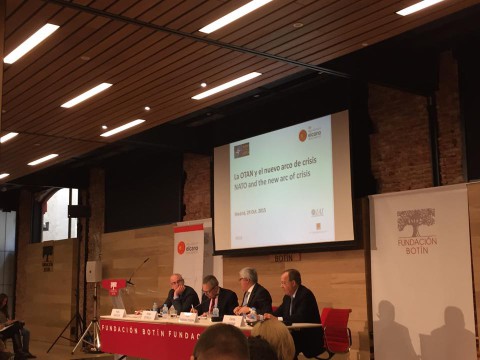
Next, General Hans-Lothar Domröse took the stage, as Commander of the Allied Joint Force Command in Brunssum. With enthusiasm and a powerful stage presence, General Domröse presented the details of Trident Juncture 2015. In particular, he explained the concept of A2/D2 (‘Anti-Access/Area-Denial’) to the audience, especially as it pertains to Kaliningrad but also how it can be applied to Crimea and Syria. According to General Domröse, the Alliance urgently needs to address the root causes of the crisis given that: “we have to help the people who flee, but we have to stop the fire — otherwise we are left with a catastrophic situation for the next generation.”
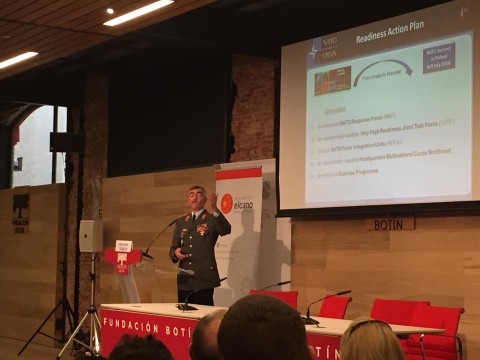
Panel 2 was entitled “NATO’s adapted toolbox – fit for purpose?’ Jüri Luik, the Director of the International Center for Defence Studies in Tallinn, started off the discussion. Regarding the Baltic theatre, Mr. Luik emphasized the importance of political will and manpower, resources, and capabilities. Regarding reconciling different priorities, he noted that more solidarity is needed to address new challenges coming from the New Arc of Crisis. Mr. Luik warned against too much realpolitik and appeasement in the sense that: “too easily we say: ‘I guess Russia has legitimate interests here.’
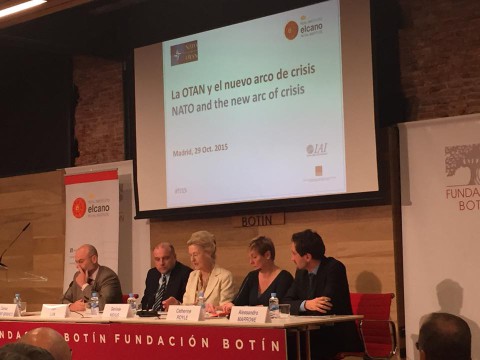
Next, Dr. Gerlinde Niehus, from the Head of Engagements Section of NATO Public Diplomacy Division, emphasized the importance of early prevention in crisis management, in the sense that “an ounce of prevention is worth a pound of cure.” Furthermore, Ambassador Catherine Royle, Political Advisor to the Joint Forces Command Brunssum, touched on cybersecurity and how cyberattacks are able to achieve the same objectives as military action but in a non-kinetic way. Amb. Royle stressed that: “Things are changing in the High North as well. We’ve seen Russia re-launch its Arctic capabilities.”
To round off the debate, Robert Gramer, Associate Director of the Transatlantic Security Initiative, from the Brent Scowcroft Center on International Security shared his policy recommendations for NATO with the audience. Mr. Gramer recommended that: first, the Alliance should identify what NATO should do and what it shouldn’t do; second, NATO members that do not geographically neighbour each other have much to learn from each other; third, lessons from exercises from one region could be applied to others; and fourth, encourage NATO members to pull their weight outside of their own region.
In closing, Mr. Edmund C. Whiteside, Acting Secretary General for Public Diplomacy, wrapped up the conference. Mr. Whiteside discussed the impetus for maritime security, refugee crisis, human security, Track 2 diplomacy, and a model for de-confliction. He stressed that think-tanks have a crucial role in working with countries such as Libya, Egypt, and others in paving the way for better understanding. All in all, the Conference was a resounding success in stimulating debate, letting diverse voices speak, and addressing public misconceptions about NATO.
